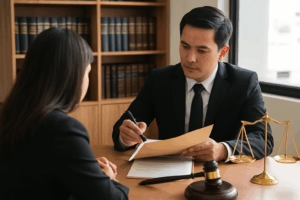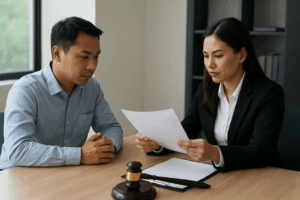Thailand’s allure as a destination for expatriates and retirees extends beyond its stunning landscapes and rich culture. For many foreigners, owning property in the Kingdom is a lifelong dream. However, understanding Thailand’s inheritance and succession laws is paramount for safeguarding assets and ensuring a smooth transfer of property to heirs. In this comprehensive guide, we delve into the legal framework governing inheritance and succession in Thailand, including the rights of heirs, inheritance taxes, and the importance of having a valid will or estate plan in place.
Understanding Thai Inheritance Laws:
Thailand’s inheritance laws are primarily governed by the Civil and Commercial Code, which outlines the rules for the distribution of assets upon an individual’s death. Under Thai law, inheritance is generally governed by the principle of statutory succession, which dictates the distribution of assets among legal heirs in predetermined proportions. Legal heirs include spouses, children, parents, and other close relatives, with specific rules governing the distribution of assets in the absence of a valid will.
Rights of Heirs:
In Thailand, the rights of heirs are protected by law, ensuring that they receive a fair share of the deceased’s estate. The Civil and Commercial Code specifies the order of inheritance, with spouses and children typically given priority over other relatives. However, it’s essential to note that Thai law does not recognize common-law marriages or same-sex partnerships for inheritance purposes, highlighting the importance of legal documentation and estate planning for unmarried couples.
Inheritance Taxes:
In addition to the distribution of assets among heirs, inheritance taxes are another crucial consideration for individuals with property or assets in Thailand. While Thailand does not impose inheritance taxes on assets passed to direct descendants, such as children or grandchildren, inheritance tax may apply to assets inherited by non-relatives or distant relatives. Understanding the tax implications of inheritance is essential for estate planning and ensuring that heirs receive their rightful share of the estate.
Importance of Estate Planning:
Given the complexities of Thai inheritance laws and the potential tax implications, having a valid will or estate plan in place is essential for foreigners owning property in Thailand. A carefully drafted will allows individuals to specify their wishes regarding the distribution of assets, nominate executors, and mitigate potential disputes among heirs. Moreover, estate planning can help minimize tax liabilities and ensure that assets are transferred smoothly to beneficiaries in accordance with the law.
Navigating Legal Procedures:
Navigating the legal procedures involved in estate planning and inheritance in Thailand can be daunting, especially for foreigners unfamiliar with the local legal system. Consulting with experienced legal professionals, such as lawyers specializing in Thai estate law, is crucial for understanding the intricacies of inheritance laws, drafting a valid will, and navigating the probate process. A reputable law firm in Thailand can provide invaluable guidance and support throughout the estate planning process, ensuring that your wishes are carried out effectively.
Conclusion:
Understanding Thailand’s inheritance and succession laws is essential for foreigners owning property in the Kingdom. By familiarizing themselves with the legal framework governing inheritance, including the rights of heirs, inheritance taxes, and the importance of estate planning, individuals can safeguard their assets and ensure a smooth transfer of property to their loved ones. Consulting with experienced legal professionals, such as those at a reputable law firm in Thailand, is crucial for navigating the complexities of Thai inheritance laws and protecting your legacy for future generations.
Contact : Siam Center Law Group by calling +66(0) 2 648 5041, +66(0) 2 648 5042





